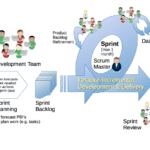Hiring employees is never an easy task. No matter how many candidates apply or how qualified they are, you’ll always have more to choose from than the required number.
But when it comes to hiring remote workers, even more factors can make the process difficult. Finding people who will fit your culture and work well with your team members is essential.
This article will show you the best ways to hire remote talent based on what matters most to small businesses like yours.

Let’s dive right in.
7 Effective Ways to Hire Remote Talent for Your Company
Determine Your Needs
The first step in hiring remote talent is determining your needs. The best way to do this is by asking yourself the following questions:
- What are the needs of my business?
This will help you determine what roles you need to fill and what skill sets those roles should have.
- What are the needs of each role?
Once you’ve identified your company’s overall needs, it’s time to look at how they apply on a more granular level. For example, say that there’s an open customer service representative position.
You’ll want someone who can answer emails quickly and resolve issues quickly. If this position requires technical knowledge, ensure it’s reflected in your job description, so only qualified candidates apply.
- How many people do I need to hire?
It may sound obvious, but having an exact number of hires helps ensure that everyone is properly vetted before joining your team.
It also makes it easier for HR managers and recruiters. And that’s because they know exactly how much work there will be until everybody has been hired.
Cast the Widest Net
Casting the widest net means searching for talent wherever it exists. This can mean using a job board, social media, and other online platforms, posting on your company’s website, and posting on relevant forums.
It may also mean using a recruiter who finds remote workers for small businesses. And it’s familiar with ensuring those candidates are qualified for the position you’re hiring for.
In some cases, casting the widest net can mean reaching out to referrals from current employees. You can even offer incentives like cash bonuses or promotions to help spread word of mouth about your business and available positions.
Know What You’re Looking For
Before you start the hiring process, you should have a clear idea of what you are looking for in an employee. For example, do they need special skills or experience? What kind of character traits do they need to possess?
Do they need to be located in a particular place, or can they work remotely from anywhere in the world? Once you have answered these questions and decided on the type of person best suited for your business, it’s time to start searching.
Schedule Time to Interview Candidates
Scheduling interviews in advance is one of the most important things you can do. If you are interviewing locally, you can schedule as many interviews as needed.
But if your business hires remote workers, you’ll likely need to interview candidates from outside your city, state, or country.
Even if you don’t have a lot of time, make sure there are enough slots each day for at least one interview. You can use time tracking software to ensure you’re always on track.
Don’t Schedule Many Interviews at Once
Avoid scheduling too many interviews at once because this could result in an overload of information and possibly missing out on great talent altogether.
Also, many factors influence how well someone performs during an interview, including noise level or other distractions around them.
When scheduling appointments with potential hires, ensure they can give their full attention without any disturbances. That will help them show off their skills efficiently.
Make Proper Use of Online Interviews
Online interviews are an excellent option for small businesses hiring remote employees. Using online interviews ensures that the candidate is suited for your business and working remotely.
That can help, especially helpful when you need to get someone quickly because of a temporary situation. In addition, asking the applicants questions about their ideal work environment will help you determine if they’re a good fit for both roles.
You’ll also learn more about each other’s expectations and needs by having an initial conversation before meeting in person.
This is particularly crucial if your company requires regular visits from clients at its headquarters, but the job applicant has no desire to relocate there full-time.
This way, everyone knows what they’re getting into before everything begins.
Provide a Realistic Timeline for Hiring
When hiring for a remote position, you must give yourself enough time to find the right candidate.
The process will take longer than if you were searching locally. And that’s because you may have to go through multiple interviews and possibly even set up an in-person interview.
Also, ensure that the candidates you hire are fully aware of what they’re getting into before they commit their time, energy, and expertise to your company.
That means giving them details about the job and how long it will take them to complete various tasks.
That way, they don’t feel like they’ve been misled by vague job postings or other red flags.
Conclusion
While challenging, hiring remote workers is an excellent method to expand your pool of potential employees. The right workers can be found from all over the world when you use remote hiring.
Having access to a wide variety of skilled individuals can help you solve challenges as they arise. However, it can be difficult to complete the process in its entirety.
Finding the proper people to work with, putting together the ideal team, and deciding on the best tools are all necessary steps. But with this guide, you can achieve your goals.
Join 25,000+ smart readers—don’t miss out!






